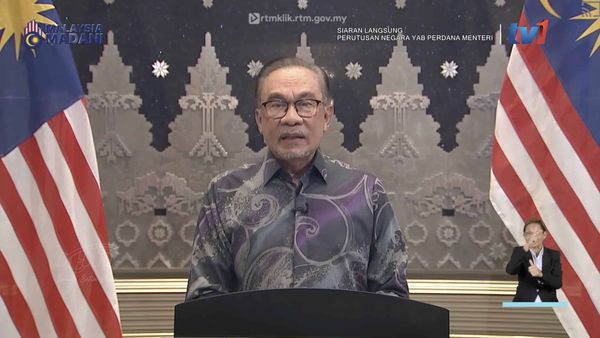KUALA LUMPUR, May 21 — The Cabinet agreed today to implement targeted diesel subsidies for consumers in Peninsular Malaysia, Prime Minister Datuk Seri Anwar Ibrahim said.
He said the subsidies will not involve consumers in Sabah and Sarawak as nearly every family’s vehicle in both states uses diesel.
“We will postpone any action (on targeted diesel subsidies for Sabah and Sarawak) as it will burden the people there,” he said during a live address televised tonight.
To curb drastic rises in prices of goods and services in the peninsula, the government will prepare subsidies for traders who use commercial diesel vehicles, he said.
Anwar also said the subsidies would involve 10 types of public transport vehicles and 23 types of goods transport vehicles under the diesel subsidy control system.
“This means that bus, taxi operators (and) fishermen will still be protected under subsidies or assistance for them. The government has agreed to provide cash assistance to owners of private diesel vehicles that are eligible, (including) smallholders, farmers and traders.
“It is for the B40 (and) M40 (groups) who need to use diesel for their business or farming, mining, livestock rearing or fishing. This means (they) will not be impacted by this hike,” he said.
Anwar said targeted diesel subsidies would not involve the T20 group and the 3.8 million foreigners in Malaysia, and would save the government around RM4 billion annually.
“I would like to stress here that we raised (introduced targeted diesel subsidies) but it does not (burden) the people. We raised the impact on the very wealthy and the foreigners.
“If there are people burdened by using diesel, there are avenues for them to refer to, the Transport Ministry or other ministries, so the targeted subsidies will only impact the rich and foreigners, and not burden other folk,” he said.
Anwar said the government will improve the Sumbangan Asas Rahmah programme by increasing allocations to RM700 million, a fivefold increase from RM130 million last year, which will benefit 700,000 recipients, with added assistance of RM1,200 compared with the previous RM600.
He said the allocation of Rahmah Cash Assistance has also been raised by RM2 billion (25 per cent) to RM10 billion this year, which will benefit nine million recipients, or roughly 60 per cent of Malaysia’s adult population.
“We have to remember where we can increase (this aid)… it’s from the funds we save through wasted subsidies that profit the wealthy and foreigners,” he said.
The Prime Minister also said the Rubber Production Incentive has been raised twice — first from RM2.50/kg in 2022 to RM2.70/kg in 2023, and then to RM3/kg this year — while the rate of the Rice Price Subsidy was raised from RM360 in 2022 to RM500 per metric tonne in 2023.
— Bernama




